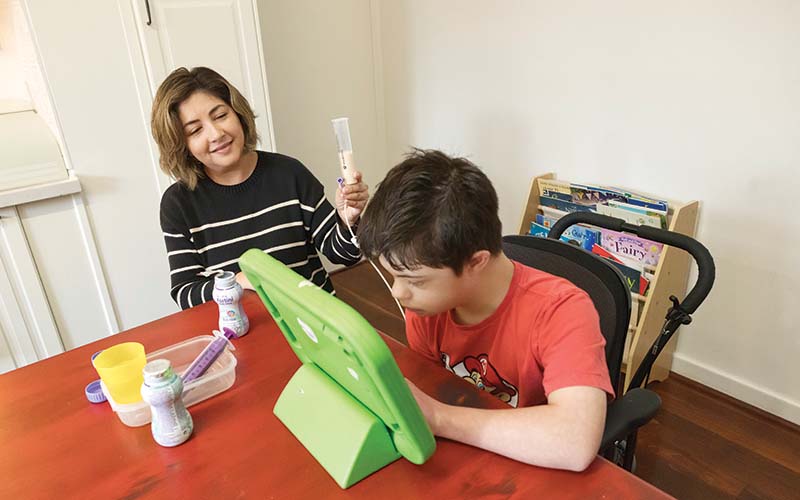Search
Playgroups are widely used throughout the Australian community yet understanding of their efficacy is hindered by inconsistent playgroup definitions and practice principles. This study aimed to develop, implement and evaluate the feasibility of a manualised therapeutic playgroup for children with developmental delay and their families using a three step process.

For thousands of children around Australia with intellectual and other disabilities, the process of eating can be traumatic, posing challenges that veer from uncomfortable to life threatening.
The Rett Syndrome Behaviour Questionnaire (RSBQ) describes behavioural and emotional features. This study investigated total RSBQ score trajectories and their clustering, and for trajectory groups, relationships with genotype and mobility, weight-for-age z scores, and seizure frequency.
In children with Rett syndrome, this study aimed to (1) describe gross motor skill trajectories; and (2) analyse the influences of genetic variant and comorbidities. This was a prospective longitudinal study conducted at the Danish National Center for Rett Syndrome 2008 to 2022. The Rett Syndrome Gross Motor Scale (RSGMS) was administered, and clinical data collected at each visit.
To explore how those with a physical illness in childhood are managing in relationships across childhood to young adulthood.
Cancer is a leading cause of death globally. Accurate cancer burden information is crucial for policy planning, but many countries do not have up-to-date cancer surveillance data. To inform global cancer-control efforts, we used the Global Burden of Diseases, Injuries, and Risk Factors Study (GBD) 2023 framework to generate and analyse estimates of cancer burden for 47 cancer types or groupings by age, sex, and 204 countries and territories from 1990 to 2023, cancer burden attributable to selected risk factors from 1990 to 2023, and forecasted cancer burden up to 2050.
Aim: To describe the real-world effects of trofinetide in individuals with Rett syndrome (RTT) using the 18-month follow-up analysis of the LOTUS study.
People with intellectual disability experience higher rates of physical and mental health problems than those without intellectual disability. Health literacy includes accessing, understanding, appraising and applying health information. Improving health literacy is associated with better health outcomes. The internet is a primary source of health information for many people. This study aimed to evaluate available online health resources for people with intellectual disability and their families to understand information gaps.
People with intellectual disability experience a greater risk of maltreatment than people without intellectual disability. Maltreatment by family members presents additional risks, including greater possibilities for concealment. This scoping reviewResults were summarized in both narrative and tabular formats summarizes extant knowledge about the familial maltreatment of people with intellectual disability and identifies gaps in the literature.
Describe the physiotherapy interventions provided to children with cerebral palsy at risk of respiratory illness and determine criteria for safe in-home treatment.
